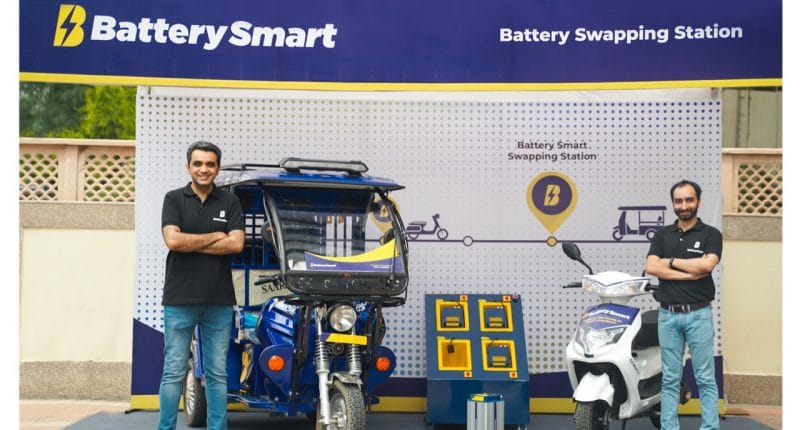New-Delhi based startup Battery Smart, which runs battery swapping stations for EVs across multiple cities, has raised $25 Mn in their series A round, with the largest contribution from Tiger Global. The round also saw participation from Blume Ventures and Orios Ventures.
EV charging infrastructure is at a high demand, and while assessment of it’s efficiency and viability according to current market size and future projections continues, Battery Smart have come up with an innovative solution. Unlike vehicles running on fossil fuels, refilling is not a necessity in electric vehicles, as their batteries could simply be swapped, given batteries are interoperable. Battery smart partnered with battery manufacturers, OEMs, and startups to set up a battery-as-a-service model, with interoperable batteries for both two and three wheelers being swapped at their swapping stations in less than 5 minutes.
Founded in June 2020 by IIT Kanpur Alumni Pulkit Khurana and Siddharth Sikka, Battery Smart currently runs 200+ live swapping stations in 10 cities, with plans to expand into 5 more. The company has completed 2.5 million battery swaps since launch, Notching up 80 million kms powered by their startup. They aim to make the concept of EVs accessible and economical, hence contributing to their mainstream adoption. The duo predict the market to grow up to $17 Bn by 2025. As the Niti ayog published a draft policy for the battery swapping industry, expectations of growth are high.
Talking about the fundraise, Khurana says, “We are thrilled to have Tiger Global be a part of our journey to build India’s largest EV battery swapping network. Battery swapping has incredible potential to fast-track the country’s EV adoption, as it solves major deterrents like range anxiety, high up-front costs, and long charging downtimes. With this investment, we are focused on bringing our offerings to even more EV users pan-India, by increasing the number of Swap Stations and continuing to partner with OEMs and fleet operators. We are also looking to strengthen our technology for effective network planning and make key hires in our growing team.”
It will be enticing to see what the future holds in terms of their collaboration with EV manufacturers. In a recent tweet, Ather Energy, responding to reports of a fire incident at one of their facilities, advised users to not use third party Services or hardware when it comes to batteries. While in the public transport sector, EVs have seen widespread adoption, their presence in personal vehicle space is still fairly limited. EVs, especially two wheelers, do solve the problem of rising fuel prices for the Indian middleclass, but recent incidents involving spontaneous fires have put a question mark on their safety image in the market.
Regardless, the battery-as-a-service model has the potential to put the company head and shoulders above competition in the chicken-or-egg situation of EVs in India. The company competes with early stage startup BatteryPool in Pune, but their target consumers also choose between charging or swapping, and hence they are in indirect competition with Statiq and BOLT, among others.
